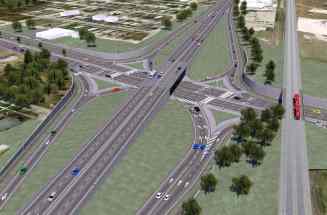Organic waste pickup in Winnipeg long overdue
Read this article for free:
or
Already have an account? Log in here »
To continue reading, please subscribe:
Monthly Digital Subscription
$0 for the first 4 weeks*
- Enjoy unlimited reading on winnipegfreepress.com
- Read the E-Edition, our digital replica newspaper
- Access News Break, our award-winning app
- Play interactive puzzles
*No charge for 4 weeks then price increases to the regular rate of $19.00 plus GST every four weeks. Offer available to new and qualified returning subscribers only. Cancel any time.
Monthly Digital Subscription
$4.75/week*
- Enjoy unlimited reading on winnipegfreepress.com
- Read the E-Edition, our digital replica newspaper
- Access News Break, our award-winning app
- Play interactive puzzles
*Billed as $19 plus GST every four weeks. Cancel any time.
To continue reading, please subscribe:
Add Free Press access to your Brandon Sun subscription for only an additional
$1 for the first 4 weeks*
*Your next subscription payment will increase by $1.00 and you will be charged $16.99 plus GST for four weeks. After four weeks, your payment will increase to $23.99 plus GST every four weeks.
Read unlimited articles for free today:
or
Already have an account? Log in here »
Hey there, time traveller!
This article was published 13/06/2019 (2370 days ago), so information in it may no longer be current.
Though Winnipeggers struggle with compliance when it comes to our materials-recycling program, we certainly have no problem with recycling ideas.
In 2011, a report from the public works committee included under its “garbage and recycling master plan” a recommendation stating “That a source separated organics (kitchen organics) trial be conducted for residential households in 2014, subject to approval of capital budgets, and based on the results, recommendations be brought forward regarding a full-scale program with an implementation by 2017.”
Now, in 2019, that discarded notion has returned. Last week, the city council committee that oversees waste collection voted in favour of developing a curbside organic-waste pilot project.

The estimated $1.2-million project, which has yet to be approved by executive policy committee and city council, would be rolled out in 2020 with the goal of establishing a permanent, full-scale organic-waste program by 2026.
It’s not clear what has changed since 2011 — other than the garbage level at the Brady Road Landfill — but it is clear that organic-waste pickup is long overdue in Winnipeg, which is the largest city in Canada without a municipal green-bin program.
Not only does organic matter — think bread crusts, apple cores, dairy products and vegetable peels, as well as items such as animal waste, cat litter, soil, coffee grounds/filters, tea bags, diapers, menstrual products, soiled paper and tissues — contribute tons of waste to our landfills, when it decomposes in an airless environment, trapped in a plastic bag under pounds of garbage, it creates methane, a greenhouse gas about 30 times more potent than carbon dioxide.
The move toward establishing a city-wide composting program is even more important in the face of the federal government’s proposed ban of single-use plastics.
It’s tough to look at Winnipeggers’ widespread failure to comply with our current recycling program and imagine that we’ll be any better at putting the right things in green bins.
When and if it comes to fruition, we may see polystyrene takeout containers replaced with ones made of compostable material, often a bioplastic created out of cornstarch or other organics. However, unlike large-scale commercial outfits, backyard composters don’t generate sufficient heat to break down this material; if thrown in the garbage, it takes years and years to break down, just like plastic.
Also, backyard composting isn’t always an attractive option for apartment dwellers, while other homeowners fear a yard bin will smell or attract vermin. The option to simply have one’s organic waste ferried away once a week allays those concerns.
For these reasons, it’s tempting to be optimistic about a plan that could finally bring us in line environmentally with other Canadian municipalities, not to mention one that also might eventually help the city meet its own targets for emissions and waste management.
However, it’s also tough to look at Winnipeggers’ widespread failure to comply with our current recycling program and imagine that we’ll be any better at putting the right things in green bins.
Just as the contamination of our recyclables makes them undesirable for purchase — recent numbers put Winnipeg’s level of contamination at 18 per cent, meaning countries such as China, India and Malaysia pay less for them — compost that’s degraded by items that won’t break down might not meet the saleability standards set by the Compost Quality Alliance and the Canadian Council of Ministers for the Environment.
Blue bin, green bin, grey bin: they’re all just garbage cans to many folks. But that doesn’t mean an organic-waste program is a pie-in-the-sky idea — after all, other cities have successfully learned that pie actually goes in the compost bin.











